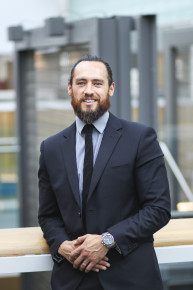Work to coordinate the government response to the Abuse in Care Royal Commission of Inquiry is led by the Crown Response Unit.
The unit is committed to listening, learning and changing | mā whakarongo me ako ka huri te tai.
Our goals are to make sure:
If we engage with you and you share your feedback with us, we will:
For more on how we engage, keep information confidential and protect your privacy, read our engagement approach agreement. [DOCX, 107 KB]
See the engagement agreement in an alternative format:
We are guided by six principles when we approach our work.
Manaakitanga
We aim to treat everyone fairly and with compassion and respect. We aim to uphold the mana (dignity) of all involved.
Openness
We are open to new ideas. We can reconsider how things have been done in the past and the way agencies operate now.
Transparency
We share our knowledge. This includes information we hold and the reasons behind key actions.
Learning
We take care to listen to survivors. We aim to learn from the Royal Commission, and use what they share to improve care.
We work together with others
We join with other agencies to work together. This is to make sure our response to Royal Commission feedback is coordinated and well supported.
Meet our obligations under the Treaty of Waitangi | Te Tiriti o Waitangi
We aim to meet our Treaty obligations. We are working to build a stronger relationship with Māori. We do this through the way we work during this process and after it.
Strategic governance of the Crown response is provided by a Sponsoring Group made up of the Chief Executives from:
The Chair of the Sponsoring Group is the Secretary of Education, Iona Holsted.
The Minister responsible for the Crown response to the Abuse in Care Royal Commission of Inquiry is Hon Minister Erica Stanford.
A crown-agency working group oversees and helps coordinate agencies' contributions to the Crown response. The group includes representatives of the following agencies most directly involved in State care, or holding key records about care history:

Isaac Carlson is the Director of the Crown Response Unit.
Isaac (Ngāti Kahungunu, Rangitāne) was previously Head of Injury Prevention at ACC, where he worked since 2007 across all aspects of prevention, care and recovery. He has worked collaboratively across the public sector in strengthening partnerships, supporting the delivery of public sector strategies, and supporting the development of whānau-centred well-being models.
Isaac started on 1 February 2023. He replaced Alana Ruakere.